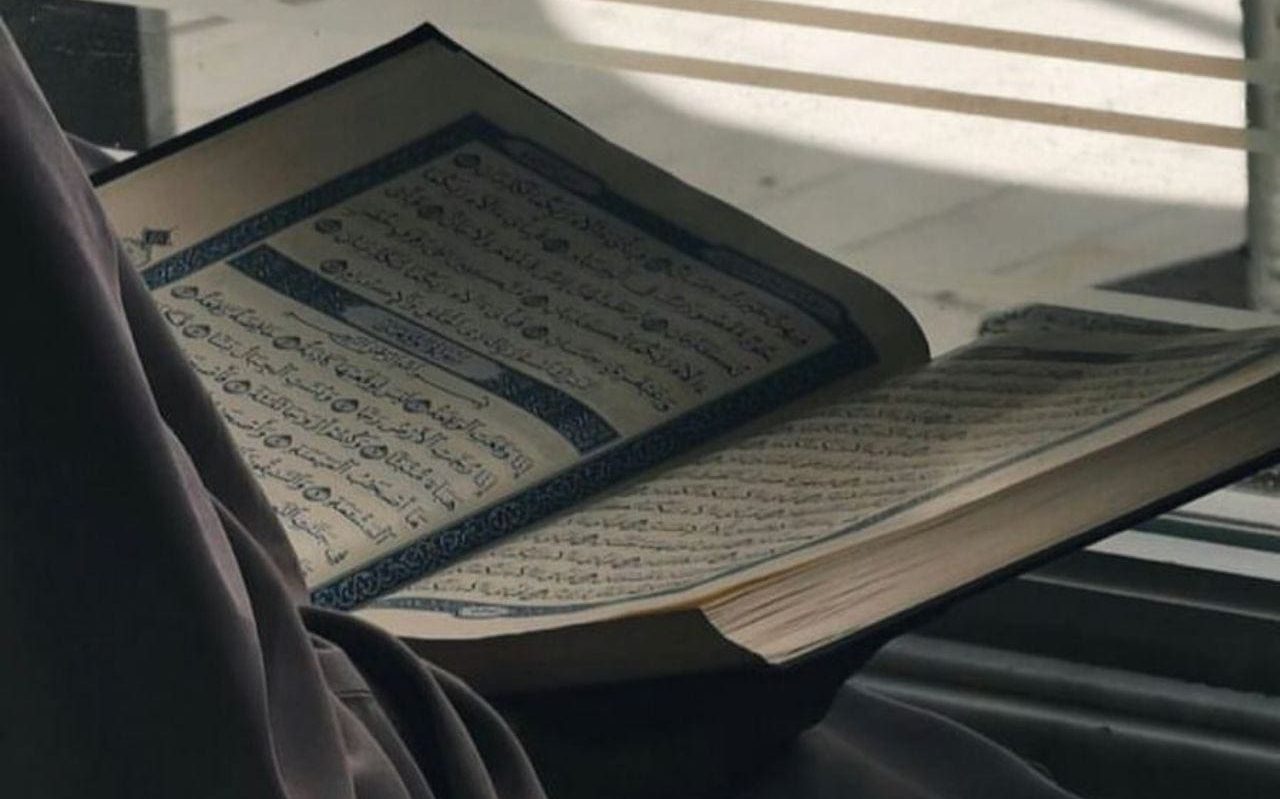The phrase “innalillahiwainnailaihirojiun” translated in English as “Indeed, we belong to Allah, and indeed, to Him, we shall return,” is a profound expression in Islam used to acknowledge the inevitability of returning to Allah. And innalillahiwainnailaihirojiun is Written in Arabic as “إِنَّا لِلَّهِ وَإِنَّا إِلَيْهِ رَاجِعُونَ,” it is commonly recited in response to news of death or during times of distress.
innalillahiwainnailaihirojiun serves as a reminder of our ultimate return to Allah and is an opportunity for spiritual reflection and seeking reward from Him. It encourages Muslims to approach calamities with patience and faith, recognizing that all trials are temporary and part of a greater divine plan.
The universal truth is that everyone will have to depart this life one day. This has been undeniable since the start of time and will be till the end of this world. Death is inescapable, and whether poor or wealthy, intelligent or dumb, everyone will pass away. In the Holy Quran, Allah SWT gives us the same message:” Wherever you may be, death will overcome you – even if you were in fortified towers…” (An-Nisa: 78)
Everything in this world, whether living beings or lifeless objects, belongs to Allah. In the Quran, Allah says: “… And Allah is the ˹sole˺ inheritor of the heavens and the earth …” (Ali ‘Imran: 180)
The Arabic phrase or the dua Innalillahi Wa Innailaihi Rojiun is a reminder that covers this entire concept. It is a Quranic command for Muslims and is mentioned in the second Surah (Al-Baqarah) of the Holy Quran.
Muslims from all across the globe and speaking any language use this when they are in distress. When a Muslim dies, prayer books are often distributed with Inna Lillahi wa Inallah-e-raji’oon images or innalillahiwainnailaihirojiun sticker.
This post contains all about Inna Lillahi wa Inna Ilayhi Rajioon message for the Muslims and on which events it should be used. Read on this post to learn Innalillahi wa Innailaihi Rojiun meaning and how it is written in different languages.
Table of Contents
Innalillahiwainnailaihirojiun Meaning
Innalillahi wa Innailaihi Rojiun means “Indeed, we belong to Allah, and Indeed, to Him, we shall return”. Innalillahiwainnailaihirojiun is written in Arabic as “إِنَّا لِلَّهِ وَإِنَّآ إِلَيْهِ رَٰجِعُونَ”.
Mostly, we recite the Quranic verses without understanding and realizing their actual meaning. If we try to understand the meaning of Innalillahi wa Innailaihi Rojiun deeply, we will definitely find great explanations. The meaning of Innalillahiwainnailaihirojiun was mentioned in the Quran in a verse: “… Indeed, we belong to Allah, and Indeed, to Him, we shall return”. (Al-Baqarah: 156)
Following is the meaning of every single word:
- Inna: Truly, surely, indeed, certainly, or verily ‘we’
- Lillahi: We belong to Allah the Almighty
- Wa Inna: And indeed we
- Ilayhi: Towards Him
- Rajioon: Shall return
Innalillahiwainnailaihirojiun And Istirja
Innalillahiwainnailaihirojiun is also Known as Istirja إِسْتِرْجَاع which refers to the act of seeking solace and patience in the face of adversity by acknowledging that everything ultimately belongs to Allah and that we will all return to Him.
The term Istirja, derived from the Arabic root “رجع” (to return), emphasizes the practice of expressing submission and acceptance of divine will during moments of hardship or loss. It serves as a way for Muslims to find comfort and strength in their faith by remembering that all events are under Allah’s control and that He is the ultimate destination.
When to Say Innalillahi Wa Innailaihi Rojiun

All Muslims are encouraged to say innalillahi wa innailaihi rojiun upon hearing the news of another Muslim’s demise. However, it should not simply be said out of habit or as a ritual, but also with further reflection or thought of what it means. This is a very profound prayer, so it is important to be mindful of what it means as it can serve greatly to us also.
It is not only said for the one who dies, but it also acts as a reminder of the end of the world when we all will return to Allah: “Every soul will taste death. And you will only receive your full reward on the Day of Judgment. Whoever is spared from the Fire and is admitted into Paradise will ˹indeed˺ triumph, whereas the life of this world is no more than the delusion of enjoyment.” (Ali ‘Imran: 185)
Every Muslim is encouraged to utter the words of Innalillahi Wa Innailaihi Rojiun to seek reward from Allah. Abu Umama reported that Prophet Muhammad (PBUH) stated that Allah says: “Son of Adam, if you show endurance and seek your reward from me in the first affliction, I shall be pleased with no lesser reward than a paradise for you.” [Mishkat al-Masabih]
In addition, this dua can be uttered in any situation when a Muslim is confronted with some sort of calamity or distress. It has been narrated by many Companions (RAA) of Allah’s Apostle (PBUH) that he (PBUH) used to say this phrase on different occasions which caused any distress or affliction. Prophet Muhammad (PBUH) also used to recite this phrase whenever his shoelace snapped, a thorn pricks him, or the light extinguished.
Experience Riwaq Al Quran Classes
Watch real moments from our live sessions at Riwaq Al Quran and see how we bring learning to life. These clips highlight our interactive, student-focused approach—designed to keep learners engaged, motivated, and actively involved in every step of their educational journey.
Hadiths About Inna Lillahi wa Inna Ilayhi Raji’un
Umm Salamah narrated that Abu Salamah told her that he heard the Messenger of Allah (PBUH) say: “There is no Muslim who is stricken with a calamity and reacts by saying as Allah SWT has commanded: ‘Inna Lillahi wa Inna Ilayhi Raji’un. Allahumma Indaka Ahtasabtu Musibati, Fajurni Fiha Wa ‘Awwidni Minha (Truly, to Allah we belong and truly, to Him we shall return. O Allah, with You I seek reward for my calamity, so reward me for it and compensate me),’ but Allah will reward him for that and compensate him with something better than it.”
She said: “When Abu Salamah died, I remembered what he had told me from the Messenger of Allah (PBUH), and I Innalillahi Wa Innailaihi Rojiun. Allahumma Indaka Ahtasabtu Musibati, Fajurni Fiha (Truly, to Allah we belong and truly, to Him we shall return. O Allah, with You I seek reward for my calamity, so reward me for it).’ But when I wanted to say Wa ‘Awwidni Minha (and compensate me with better), I said to myself: ‘How can I be compensated with something better than Abu Salamah?’ Then I said it, and Allah compensated me with Prophet Muhammad (PBUH) and rewarded me for my calamity.” [Sunan Ibn Majah]
Inna Lillahi Wa Inna Ilayhi Rajioon Transliteration

There are many variations in the transliteration of Inna Lillahi Wa Inna Ilayhi Rajioon, and there is no one correct or accepted version. All these variations are simply the English transliteration of the Arabic text. Basically, the one used should be the one that most correctly reflects the pronunciation of Innalillahi Wa Innailaihi Rojiun in Arabic.
Following are some of the variations of the phrase:
- Ina lilah waina allah rajiun
- Inna Lillahi wa inna ilayhi raji’un
- Inna lillahi wa inallah-e-raji’oon
- Inna lillahi wa inallah rajioon
- Inna lillahi wa inna ilaihi raji un
- Inna lillahi wa inna ilayhi rajioon
- Inna lillahi wa Inna ilaihi rajiun
- innalillahiwainnailaihirojiun
These are the commonly used transliterations. All these transliterations are helpful with pronunciation, but it is recommended to listen to its audio if needed so as to know the precise pronunciation.
Inna lillahiwa Inna ilayhi raji’un in Arabic
Inna Lillahi Wa Inna Ilayhi Rajioon is a phrase that is almost always recited in the Arabic language. So, Inna Lillahi Wa Inna Ilayhi Raji’un in Arabic text is written as (إِنَّا لِلَّٰهِ وَإِنَّا إِلَيْهِ رَاجِعُون)
In addition, knowing the Arabic meanings of what you recite can greatly help you build a closer relationship with Allah the Almighty. Check this blog for more information about the importance of learning Arabic in Islam.
Inna lillahi wa inna ilayhi raji’un in English
The English translation of Inna Lillahi wa Inna Ilayhi Raji’un (إِنَّا لِلَّٰهِ وَإِنَّا إِلَيْهِ رَاجِعُون) is as follows:
“… Surely to Allah we belong and to Him we will all return.”
Or, “… Indeed, we belong to Allah, and Indeed, to Him, we shall return”
Innalillahiwainnailaihirojiun Urdu Translation
Inna Lillahi wa Inna Ilayhi Raji’un in Urdu text is written as follows:
بے شک ہم اللہ کیلئے ہیں اور ہمیں اسی کی طرف لوٹنا ہے۔
Inna Lillahiwa Inna Ilayhi Raji’oon in Hindi
Innalillahi wa innailaihi rojiun (إِنَّا لِلَّٰهِ وَإِنَّا إِلَيْهِ رَاجِعُون) in Hindi is translated as the following text:
हम अल्लाह के हैं और उसी की ओर लौटेंगे
Innalillahiwainnailaihirojiun in Tamil
Inna lillahi wa inna ilayhi raji’un (إِنَّا لِلَّٰهِ وَإِنَّا إِلَيْهِ رَاجِعُون) in Tamil language is translated as:
நாம் அல்லாஹ்வுக்கே உரியவர்கள், அவனிடமே திரும்புவோம்

Why Students Love Learning with Riwaq Al Quran
Hear directly from our students about how Riwaq Al Quran Academy has transformed their connection with the Book of Allah. Their experiences reflect the dedication, care, and quality that guide every step of our teaching.
Learn Quran, Arabic And Islamic Studies Online With The Best Native Tutors
Riwaq Al Quran is a comprehensive online platform that offers personalized Quran, Arabic and Islamic Studies Online classes for individuals of all ages and backgrounds.
Their experienced instructors use a structured curriculum to cover Tajweed, Tafsir, and Memorization, providing easy and effective access to learning the Quran.
The advanced online classes allow for seamless communication and interaction between students and teachers. Join Riwaq Al Quran for a deeper connection with the Quran.
We offer several courses such as:
- Online courses for kids.
- Online Quran classes for kids and adults.
- Online Arabic courses
- Online Ijazah courses
- Online Islamic Studies courses.
Here are a sample of our set of Quran Courses that will be helpful for you:
- Online Tafseer Course: Delve into Quranic meanings with our insightful online Tafseer course.
- Noorani Qaida Online: Learn Quranic basics efficiently through our Noorani Qaida online program.
- Online Quran Recitation Course: Enhance Quranic recitation skills through our expert-led online course.
- Online Tajweed Classes: Master Tajweed rules for beautiful Quranic recitation in online classes.
- Quran Memorization Online Course: Memorize the Quran effectively with our specialized online memorization course.
- Online Qirat Course: Explore diverse Qirat styles with our comprehensive online Qirat course.
- Online Quran Classes for Kids: Nurture a love for the Quran in kids through interactive online classes.
Wrap Up
So, one can recite Innalillahi Wa Innailaihi Rojiun, إِنَّا لِلَّٰهِ وَإِنَّا إِلَيْهِ رَاجِعُونَ, in any language when facing distress or discomfort. It is important to learn that this is not only a statement but a prayer. Reciting it with a pure heart and true intentions that we all are destined to return to Allah SWT will give us much reward.
Riwaq Al Quran makes it easier for all Muslim brothers and sisters by offering multiple Online Arabic Courses to have a good grasp of the Arabic language and get help in understanding the dua.
Also, you can now enroll in our special Quran Tafseer Course that is specifically designed for students who wish to understand the true meaning of the Quran and ponder its greatness.


































